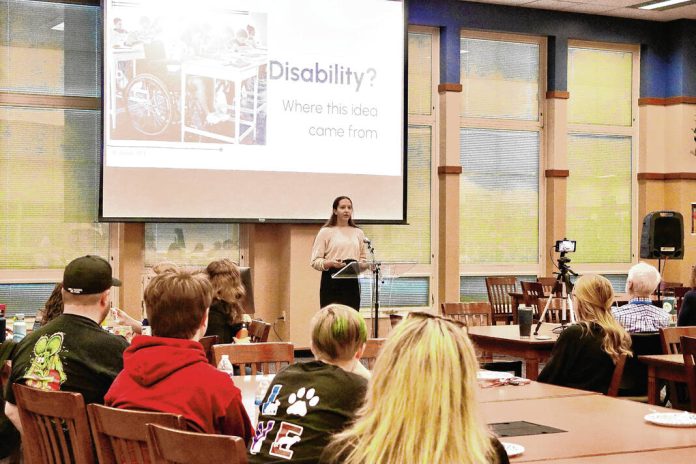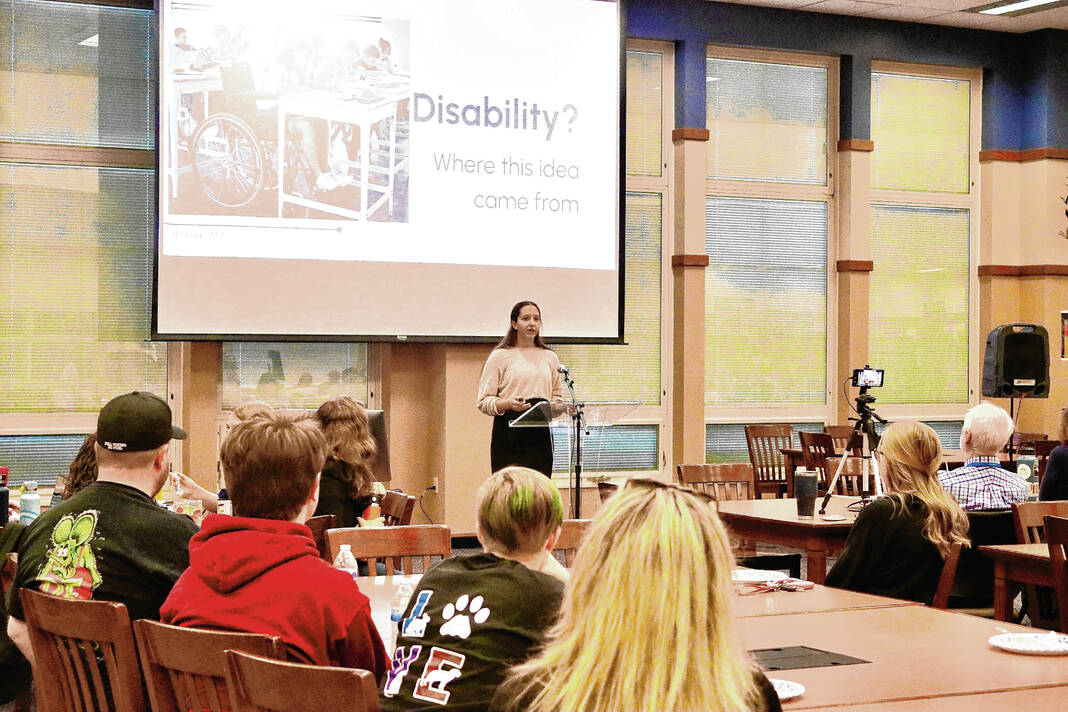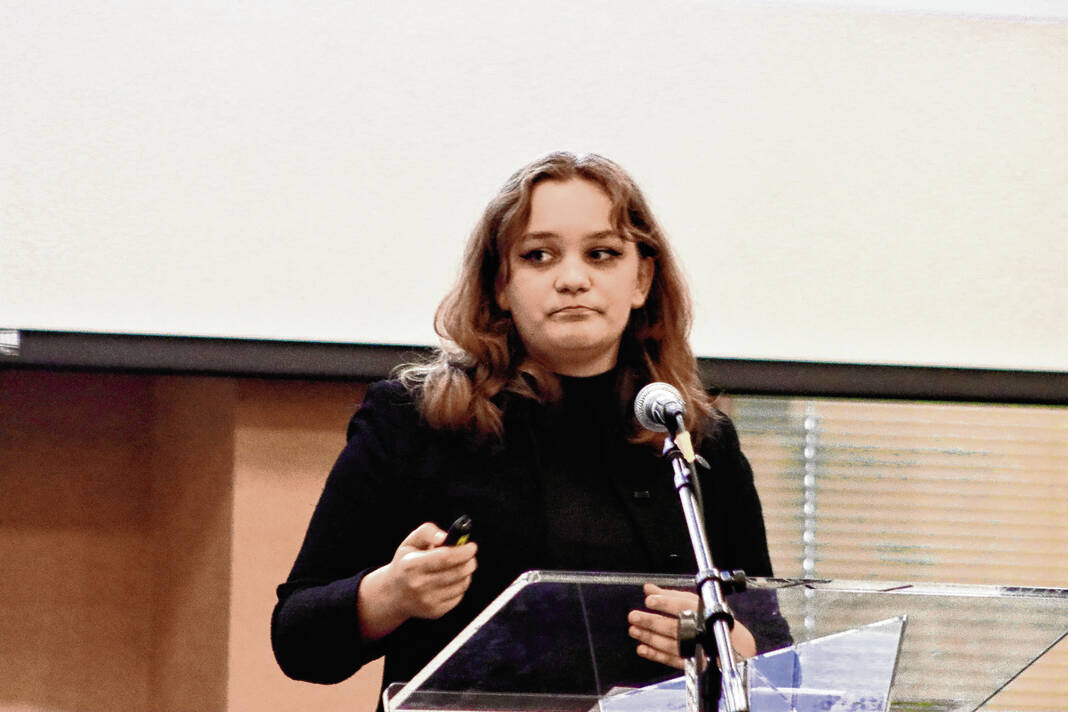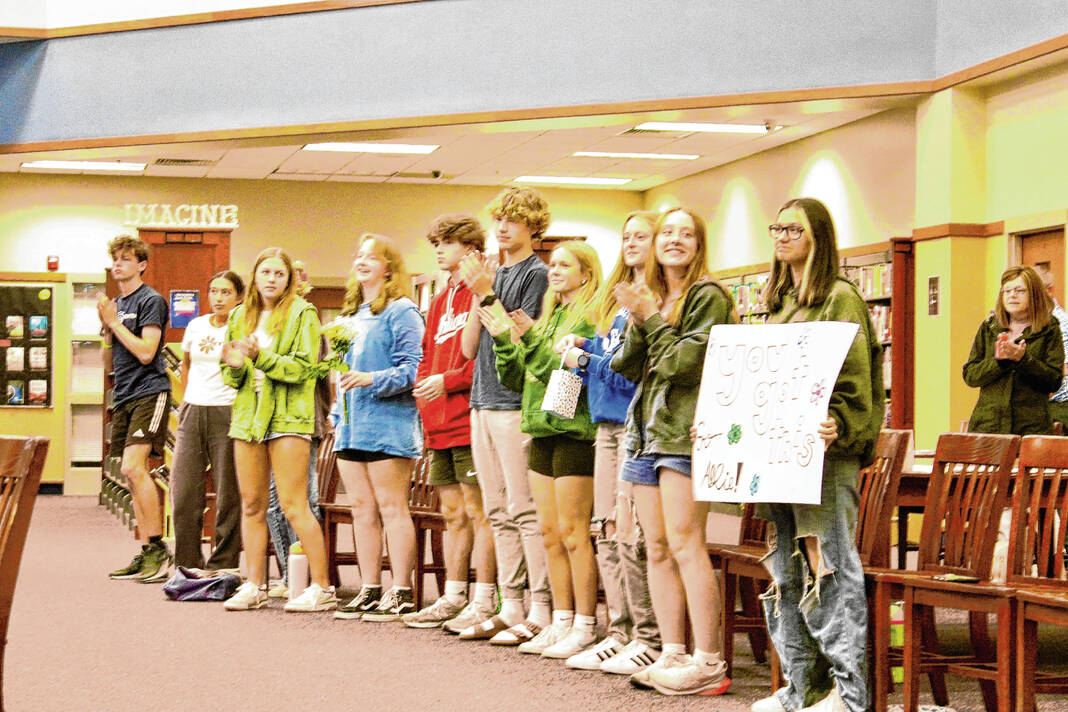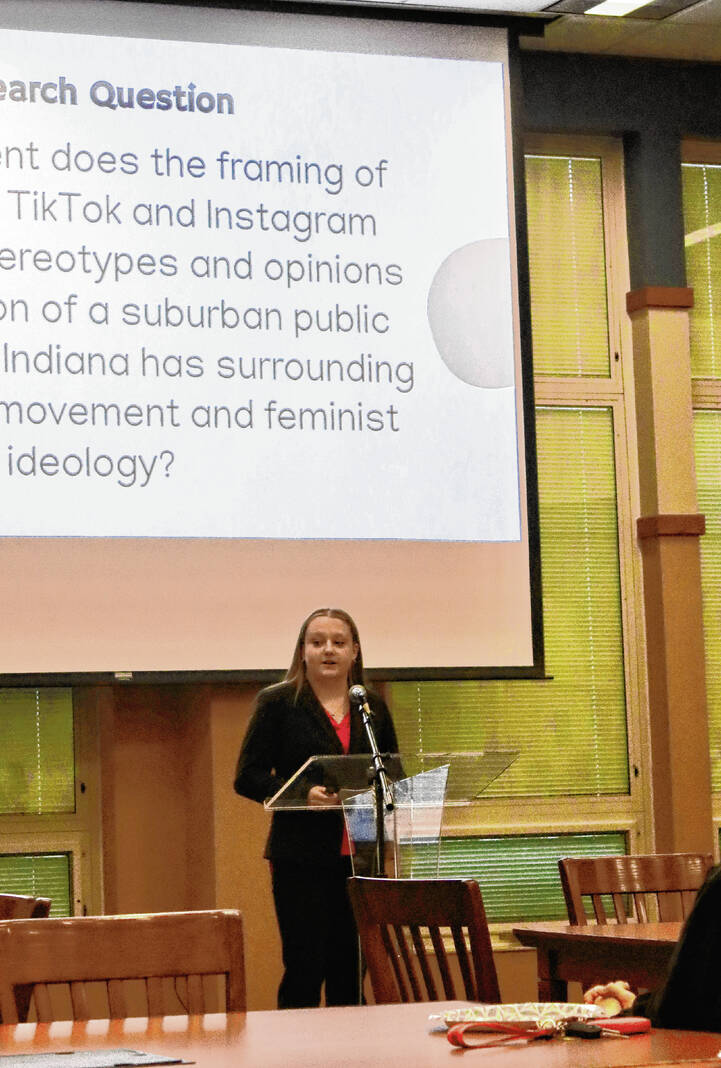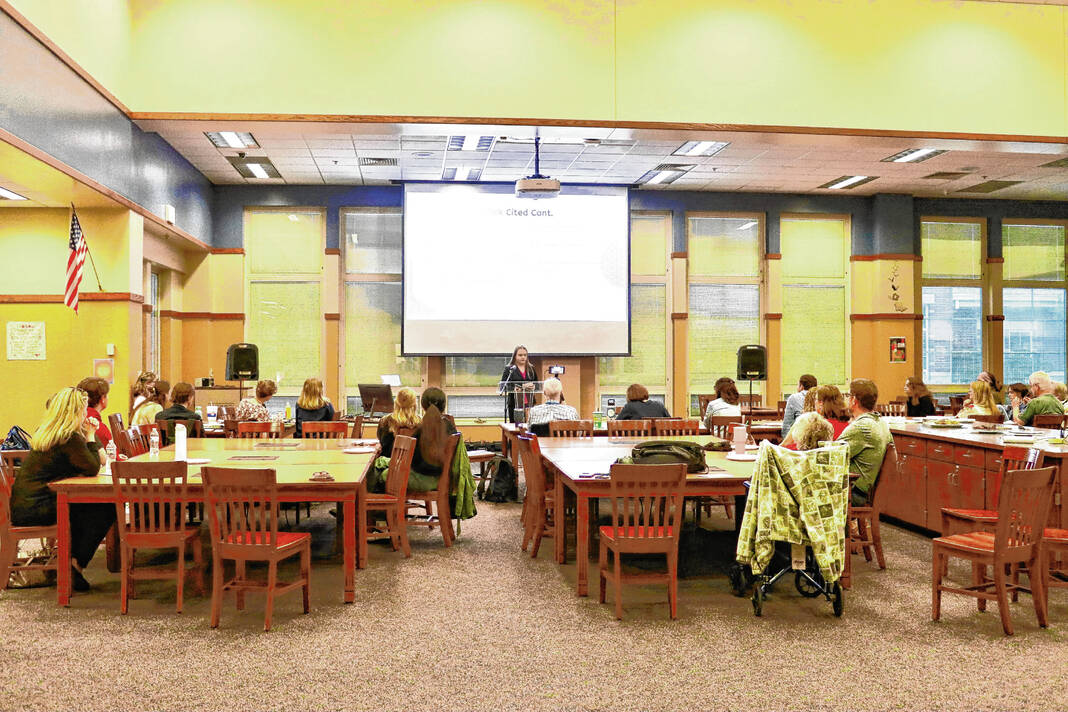As the school year nears its end, a group of Franklin Community High School students finally completed the task they had worked on for months.
Students presented their Advanced Placement research and seminar topics last week, capping off a year-long journey through a myriad of topics — from the impact of dance movement therapy to the way women are presented in Disney films.
AP, which is run by the College Board, offers college-level courses and exams for high school students to potentially earn college credit. Franklin students can take AP Seminar and AP Research starting their sophomore year but must take Seminar before Research.
Each class works throughout the year focused on the final presentation, which is one part of the student’s AP score.
The skills that students learn throughout the courses are ‘invaluable,’” said Janet Kirby, who teaches both AP classes.
Students who complete both courses and earn high enough scores can earn an AP Capstone Diploma, a diploma program from the College Board. The diplomas are “valued by colleges across the United States,” according to the College Board’s website.
For the first time, some students may be eligible for the diploma, Kirby said. They won’t know for sure until scores are released in July, she said.
AP Seminar allows students to gain skills by looking at real-world issues from different perspectives, Kirby said. Students learn not only how to make an argument, but how complex it can be. They also learn to consider potential counterarguments and rebuttals.
Students research topics of their choice. The only limitation is the topics must be school-appropriate, Kirby said. Some topics that students uncover can be “adult in nature,” but Kirby trusts the students’ judgments to put something inappropriate in their presentation, she said.
Topics for this year included exploring the evolution of white supremacist manifestos, the impact of dance movement therapy, the way women are presented in Disney films compared with the four waves of feminism and more, Kirby said.
“They’re all topics that students are interested in, that they care about,” she said.
Another focus is teaching students how to be effective team members, how to work independently and meeting deadlines. Throughout the semester, students write two papers. First students write a 1,500-word report looking at an issue from a specific perspective meant to help students gather information.
Next, they wrote a 2,000-word argument connecting their classroom material to real-world problems where students research and come up with potential solutions. Students in AP Seminar give two presentations throughout the year: an individual one and a team presentation.
The course focuses on five big ideas — questioning and exploring, comprehending and explaining a perspective or argument, evaluating multiple perspectives, using the information to form their own conclusions, building their own ideas and learning to work alone and in a group to communicate ideas.
Allowing students to pick their topics to explore “lets them figure out what is important to them,” Kirby said.
One major focus is the complexity of problems and their solutions. Kirby encourages students to look at problems from multi-faceted lenses.
“You can’t just look at a problem as ‘this is the only way to look at it,’” Kirby said. “There’s more than one way. It depends on who the stakeholders are and what their interests are. It’s more complex than what we think and having a discussion about it isn’t necessarily shouting above each other. It’s about, really, trying to consider the other person’s point of view.”
AP Research builds on the skills of the Seminar class, Kirby said. Not only do students research what experts are saying, they also research it for themselves, she said.
The research is similar to what graduate students would do when defending a thesis, Kirby said.
Allie Mullis, a student in the class, researched teacher attitudes toward special services students in the classroom. First, Mullis completed a literature review to find research gaps. Then, they designed research to address the gap, Kirby said.
The students sent out surveys to teachers and interviewed special services teachers for their perspectives. Mullis picked the topic because she wants to be a special services teacher in the future, Kirby said.
After research, students write a 5,000-word academic research paper and give a 20-minute presentation and defense of the topic. Kirby often hears from former students that the skills they learned in the AP classes are helping them in college, she said.
“It’s an interdisciplinary class,” Kirby said. “So students can use those skills in any other discipline, as well as college and hopefully in life.”
AP Research students took the AP Seminar students “under the wing” this year, offering support and encouragement, Kirby said. Each class cheered the other on during their presentations by making signs and bringing flowers and candy bags with notes of encouragement, Kirby said. One sign read “Your talk about manifestos is the best’os,” she said.
“I like when I hear folks expressing concerns over the way the world is, the direction the world is moving, I tell them, ‘You need to meet my students because I’m not worried about our future at all,’” Kirby said. “I think it’s pretty sound if they’re any indication.”


